January is always a great place to learn new stuff, or at least threaten to. Or the first of the month, or a Monday or any day really… but before and during change is also smashing and probably more useful.
So, what do we know?
Learning during change is often essential, but do we really give it enough time? Not because we don’t care (heaven forbid) but because we’ll do it later, tomorrow, anon. We push it out. And that gives us two problems, you aren’t equipped to enter into the change, or you aren’t ready to get through it.
What can we do about it? Find the gaps.
If you’re thinking about you, understand what you might need to know to either ‘get on with it’ or to navigate the bumps. What or who can help you? It might be a human, or free course, a book. Make connection with that learning need and its solution and start to invest your time in it. And by time it could be 15 minutes a day, it could be a five day course (I wouldn’t dive straight into this one if you’re time precious or already motoring through the change). But find it and try and bridge the gap.
If this is about ‘them’ (those out in the organisation affected by the change) understand what you need them to know and be competent in:
If it’s a new system or process, you might be limited to some sheep dip training (we don’t love this, but we know systematised processes need standard training), but also think about how it can be more meaningful, or supported for the more unique teams or activities (realisation workshops where you ‘do it for real’ or try and break the processes are smashing for this). Lead with learning outcomes when you commit peoples time and energy, ensure there is a chance to revisit before ‘live’ or intensive usage.
If its softer, or less tangible like ‘how’ to ‘change’, this won’t be a course and it certainly can’t be sheep dipped. Likelihood here is there won’t be single answer, but here are some of our favourites:
- Setting out the journey ahead, how it will change where you are and what support there is (this could be training, forums, communities that people can opt into) – you don’t do this once, this is a sentence in every presentation, email, workshop etc. repeat to get traction and trust.
- Establish a community of practice around the change, where people can come together and talk about the actual change, their role, experiences and future. This sort of event and opportunity builds both competency and resilience, where you offer a ‘safe’ place to respond and react to the change in hand
- Actually teach: you will probably find that as people to play out of place or role, there will be competency gaps when it comes to doing what you ask (think more change leadership than new buttons and widgets). Talk to those individuals and see what they need. If you can’t pinpoint the ‘answer’ Mentoring and Coaching will be a lovely and supportive bit of help where the individual gets exactly what they need to do what you need. But you can also solve some of this in a community of practice, if you can focus it in on the problem/competency.
Better Change: of course, of course of course. BUT. Building competency is genuinely hard, especially if the change is in play (it’s like when your late and you try and ‘go quicker’ and end up going slower).
So, be pragmatic and lower your expectations if your change is in play. If you have time…START NOW…you can build change competency quickly if you don’t need it, if you have time to really learn it (and unlearn other stuff).
If you want to learn with us, we’d love that. So, grab yourself a Power Hour and let’s get talking.
See you soon
S
P.S We’re running our workshop three times this year, so if you’ve thought about it, but not yet committed, head this way
